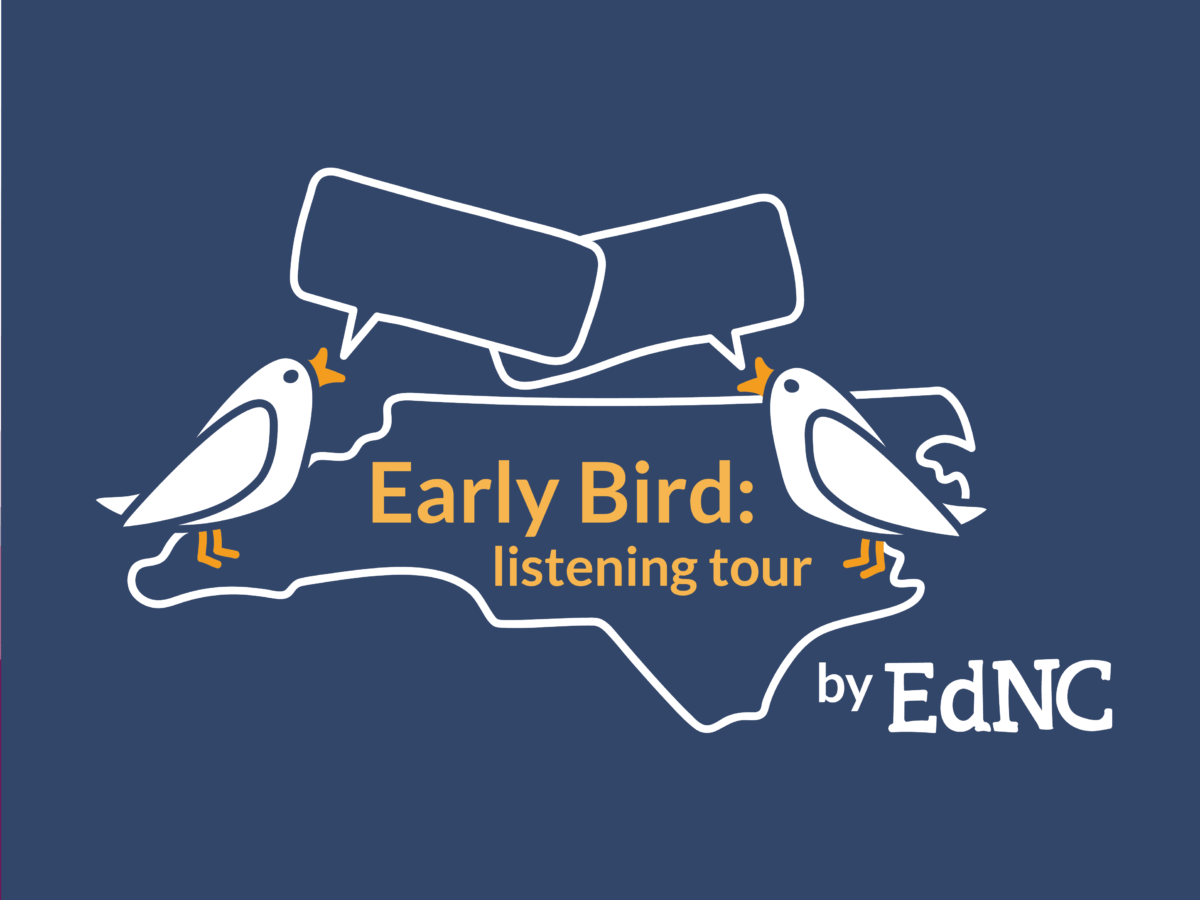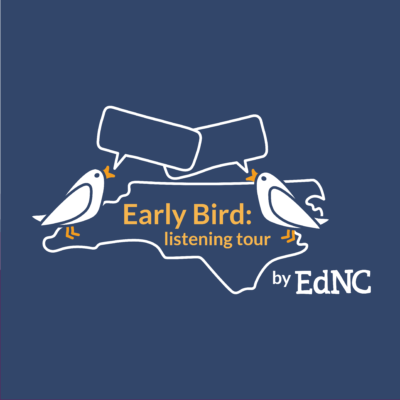
“As we go into school, the unknowns are just kind of looming larger than life,” said Jamie Barnhill, a kindergarten teacher at Forest View Elementary in Durham.
As Barnhill plans to teach his 5-year-old students through screens this month, he is worried about a drop in kindergarten enrollment. He is worried about staying connected with the children and families who do register. He is worried about children who rely on school for food, like the student he emptied his pantry for in the spring.
Sign up for Early Bird, our newsletter on all things early childhood.
Others share his concerns. “The unknowns” ran through my conversations with early educators, child care directors, parents, local leaders, and activists alike last week as I went on a virtual listening tour ahead of the school year to check in with varying perspectives on early learning. Child care directors wondered how to manage school-age children during remote learning while being safe; educators wondered how young children will develop through major disruptions in their environments; parents wondered how they’d balance it all.
“You can do so much in the day, and you feel like, is it worth it?” asked Patricia Spruill, director of Step by Step Home Daycare in Tarboro. Every time Spruill goes to the store, she’s worried she’ll bring germs to the children in her care. She wants to serve her community but worries that introducing school-age children will add more risk. “Funds,” she said. “We need funds.”
Check out the first Early Bird podcast, produced by Alli Lindenberg, for a montage of responses to that one question: What is the pandemic teaching you about our support for our young children in North Carolina?
Another through-line of the week was a commitment to speak up on behalf of young children, even when it seems not enough people are listening.
“It’s a continual battle to help people understand the importance of the early childhood years, in any situation, but especially during a pandemic,” said Mary-Margaret Kantor, an early-childhood professional and administrator at Central Piedmont Community College.
Many were cautiously optimistic that the pandemic’s health and economic crises could draw attention, and investment, to systems and people that serve children in the earliest years of life. “When there’s a real economic hit, people are more willing to listen to other solutions,” Kantor said, “which may very well include attention to early childhood.”
Theressa Stephens, director of Church Child Care, a center in Forsyth County, has worked in early childhood her entire adult life, and serves on multiple boards in the community.
“It took a crisis for people to realize the value of our field,” Stephens said.
Others found recent attention and terms like “essential,” given to child care workers during spring’s stay-at-home orders, to be empty without tangible investments to address long-running issues of low pay for early educators, a lack of access and affordability for parents, and racial disparities in quality and discipline outcomes.
Margo Ford, an NC Pre-K teacher in Greensboro, put it this way:
“Our foundation is not solid, so we keep crumbling. This pandemic has caused us to crumble in so many aspects. We’ve got holes in the walls, we’ve got leaks in the building, and they’ve been exposed. We have this opportunity right now to rebuild, reshape, restructure the foundation of education.”
Recommended reading



